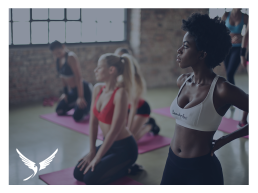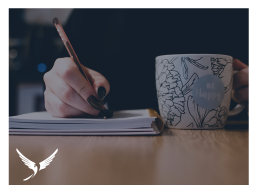How can we stress less?
Some of the biggest public health challenges that we are facing are poor mental health and stress. The Mental Health Foundation has found that 74% of people feel so stressed they have been overwhelmed or unable to cope. Sadly, the impact of this is not taken seriously enough, and many continue to separate mental health from physical health (and vice versa). The reality is that mental and physical health are two sides of the same coin, with one directly impacting the other.
Stress Awareness Month is recognised every April, to raise awareness of the causes and corrective actions for modern-day stress. So, let’s take some time this month to consider how we can open a dialogue surrounding stress to reduce the stigma, and how we can stress less.


Look after your Social Wellbeing
- Being a part of a community and connecting with others is a great way to boost your mood. It’s much more than just talking to people, but about belonging, being a part of something and having a genuine support network.
- It’s important to remember that it is okay to ask for help if you need it, and that genuine support network is a great place to voice these feelings.
- A Random Act of Kindness can go a long way, for both you and the recipient. It’s nice to be nice!
Make Time for Self-Care
- Be kind to yourself, which is easier said than done. Treat yourself with kindness and respect and look after your body.
- A small amount of exercise a day can have a large impact on your overall health. Try to make time for even a little bit of physical activity.
- Be sure to have some ‘You’ time. At the end of a long day maybe pick up a book (studies say reading for 30 minutes a day can make you live longer!) or relax with a hot bath.


Sleep Health
- A good night’s sleep is fundamental for your health, and if you’ve ever had a good night’s sleep, you know the feeling of being well rested!
- Spend some time winding down before bed, have a bath, read a book and get relaxed.
- Maybe try a Digital Detox? Consider some quality tech-free time, especially before bed to disconnect from the ‘always on’ mindset.
Healthy Eating
- Food is a very necessary fuel, and healthy eating habits provide us with the nutrients we need to grow and be healthy. This extends to mental wellbeing too.
- When stressed you are likely to crave unhealthy foods, try to steer these towards foods that have a calming effect such as nuts, dark chocolate, berries or chamomile tea.
- Stay hydrated, drink plenty of water. Water is one of the most important nutrients for our bodies, and the human body is 60% water. When we haven’t drunk enough water, our energy levels are lower, and it’s an unnecessary stress.


Prioritisation and Organisation
- Be sure to set your boundaries for a healthy work life balance. Outside of working hours schedule time for doing things for yourself.
- Try to pre plan and prioritise your tasks either the day before, or early in the morning. This can help to make your day and task list feel a lot more manageable.
- It’s unrealistic to expect yourself to do everything, so remember to delegate the tasks which do not have to be done by you.
The most important thing you can do when combatting your stress or anxiety, is to ensure you’re looking after yourself. It’s so easy to fall into bad habits and take on more than you can handle, but it’s okay to say no to requests that are too demanding, its okay to reach out for help, and it’s okay to take time for you.
For more information on Stress Awareness Month, and access to a number of helpful resources, visit the Stress Management Society website: https://www.stress.org.uk/
